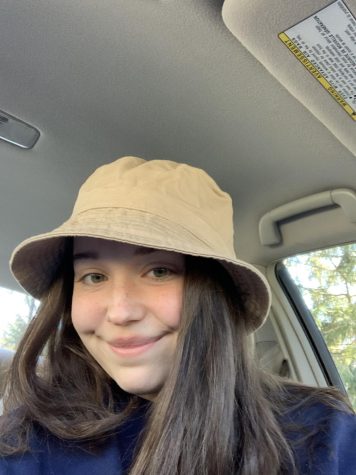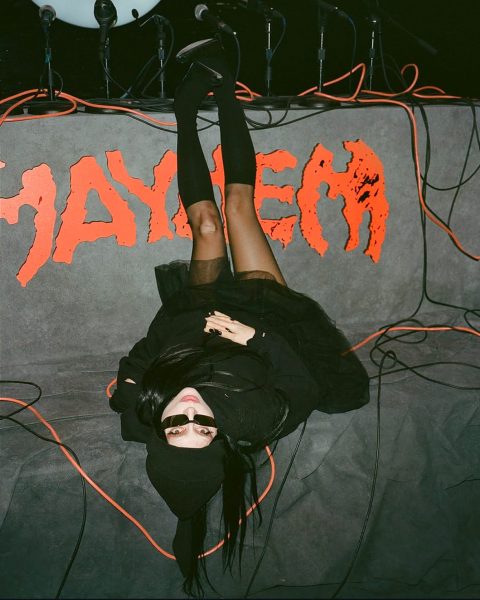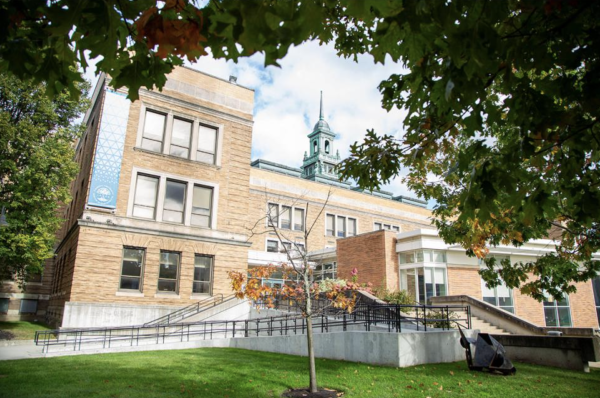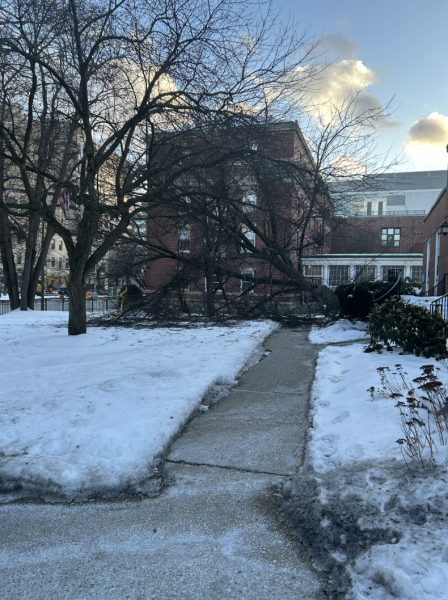Mitski’s new album delivers salvation after her two-year hiatus
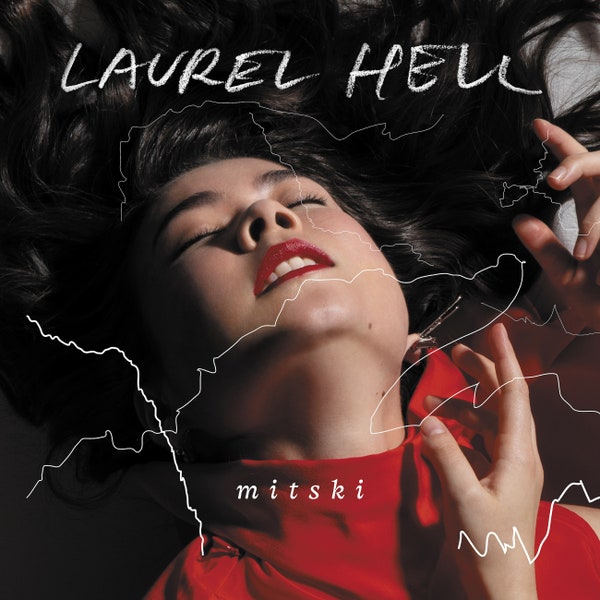
Mitski’s “Laurel Hell” album cover
February 25, 2022
Singer-songwriter Mitski, arguably one of the biggest indie-pop musicians of the moment, released her sixth album “Laurel Hell” on Friday, February 4 following a two-year hiatus.
The album is a follow-up to her 2018 album, “Be the Cowboy,” which explored an array of personas, arranged like character studies in a short story collection. While “Cowboy” was an incredible feat, the pressures of promoting the album, touring, and being regarded as a commodity ultimately led the singer to take a hiatus.
Thematically, “Laurel Hell” explores Mitski’s fraught relationship with her career. Her approach to fame is admirable, honest, and human. On the track “Everyone,” she contemplates, “Sometimes I think I am free/ Until I find I’m back in line again.” A recent Wall Street Journal review of the album compared her fanbase to that of Taylor Swift and BTS, in terms of rabid intensity, but the singer approaches fame with fearful caution.
“Working For the Knife,” the incredibly resonant lead single from the album, expresses the exhaustion of working in a creative industry. Mitski reflects, “I used to think I would tell stories/ But nobody cared for the stories I had…” While her sound is more synth-heavy than it was at the beginning of her career, she still has the poetic ability to rip the listener’s heart out but make them want to keep listening.
Like many classic Mitski tracks before, “Stay Soft” relishes in double meaning. The singer examines the nature of sincerity in an irony-poisoned world while also making room for innuendo. Coupled with soaring instrumentals, the chorus views the dilemma of the vulnerable: “You stay soft, get beaten/ Only natural to harden up.” Mitski portrays how sincerity can feel like a losing fight.
“Heat Lightning,” another single, is a highlight of the eleven-track album. The song depicts insomnia but also a state of acceptance. The chorus repeats “There’s nothing I can do, not much I can change.” The atmosphere of the song could best be described as sleeping with the windows open on a summer night in your childhood room.
For its catchy and upbeat instrumental, “Should’ve Been Me” is the most radio-friendly track on “Laurel Hell.” In terms of its lyrics, it does feel like a step down for the usually poignant writer. However, before this track, I never expected to add Mitski to a workout playlist. This one is for the elliptical.
My personal favorite track on the album is its closer, “That’s Our Lamp.” The song explores what happens when a relationship becomes more of an obligation. A person may stop liking another, but impermanence lies in the objects and experiences that were shared.
In spite of its fresh sound and lyrics, the pacing of this album is scattered. For example, the aforementioned dreamy, slow “Heat Lightning” is succeeded by the uptempo “The Only Heartbreaker.” After several listens in its sonic order, I concluded that maybe this organization was more intentional than I first suspected. Its structure mimics the rapid internal changes that come with living in the modern age, where shifts from malaised to curious to outrage are frequent.
Sonically, the album borrows from the 80’s with a contemporary twist. The influence of new wave icons like Tears For Fears and the legendary ABBA can be traced throughout the album.
Above all, what makes Mitski stand out is her lyricism. In a world where the internet connects us to more tragedy and absurdity than ever before, storytelling is salvation. It’s a way to make sense of things that attempt to make one feel dehumanized. In her narrative songwriting, Mitski remains a humanizing force.



